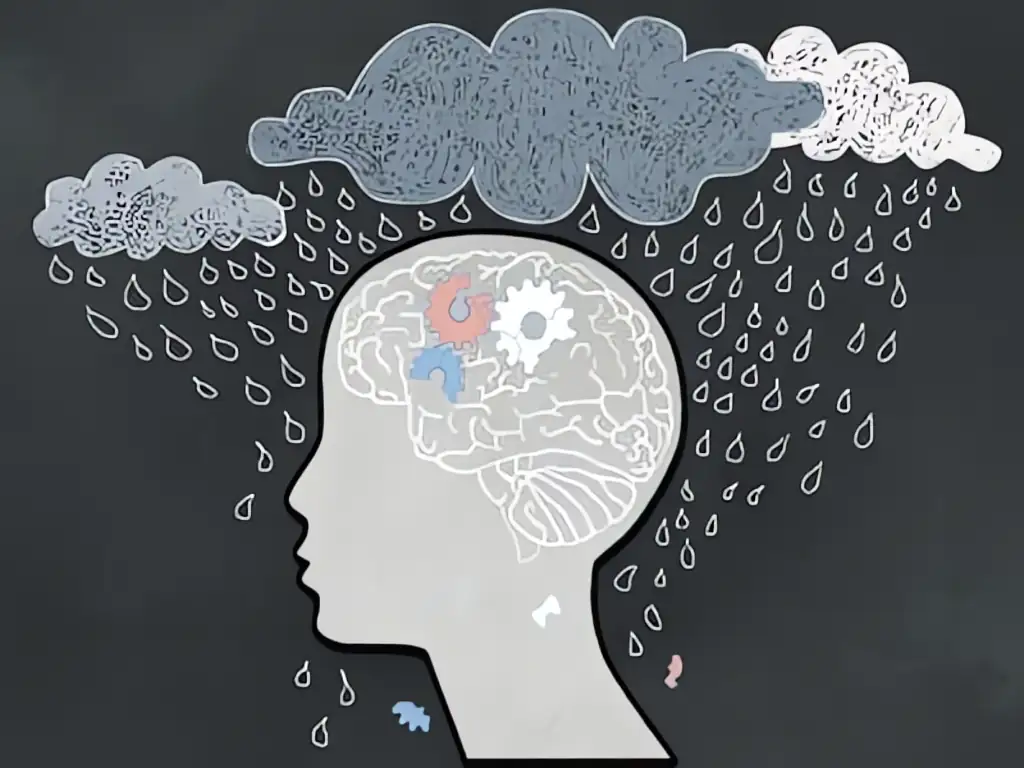Anxiety and depression have become two of the most significant mental health concerns globally, affecting millions of people each year. These mental health conditions can range from mild to severe and can significantly impact an individual’s daily life, relationships, and overall well-being. According to the World Health Organization (WHO), over 264 million people suffer from depression worldwide, while anxiety disorders affect over 284 million people, making them some of the most common mental health issues.

The prevalence of anxiety and depression has increased significantly in recent years, especially among young adults and teenagers. Social media, academic pressure, financial instability, and uncertainty about the future all contribute to the rising rates of these mental health conditions. Recent anxiety statistics indicate that anxiety disorders are more common among women compared to men, and young people are at a higher risk of developing anxiety compared to older age groups.
The Link Between Anxiety and Depression
Anxiety and depression often go hand in hand, with many individuals experiencing both conditions simultaneously. This comorbidity can make diagnosis and treatment more challenging, as the symptoms of one condition can worsen the other. For example, chronic anxiety can lead to feelings of hopelessness and sadness, which may result in depression. Conversely, individuals suffering from depression may experience excessive worry and fear, which are characteristic symptoms of anxiety.
The combination of anxiety and depression can be particularly debilitating, affecting every aspect of a person’s life. It can lead to social withdrawal, reduced productivity, and a loss of interest in previously enjoyable activities. This vicious cycle can be difficult to break without professional help, making it essential for individuals experiencing symptoms of both anxiety and depression to seek support.
The Impact of Anxiety and Depression on Physical Health
The impact of anxiety and depression is not limited to mental health; these conditions can also have severe consequences for physical health. Chronic anxiety and depression can lead to a weakened immune system, making individuals more susceptible to illnesses. Additionally, both conditions are associated with an increased risk of cardiovascular problems, including high blood pressure and heart disease.
People with anxiety and depression may also experience sleep disturbances, such as insomnia or difficulty staying asleep. Poor sleep can further exacerbate symptoms of both conditions, creating a cycle of fatigue, irritability, and heightened stress. Digestive issues, such as irritable bowel syndrome (IBS), are also common among individuals with anxiety and depression, further impacting their quality of life.
Furthermore, anxiety and depression can lead to unhealthy coping mechanisms, such as substance abuse, overeating, or self-harm. These behaviors can have long-term consequences for an individual’s physical health and may make it even more challenging to manage the symptoms of anxiety and depression effectively.

Addressing Anxiety and Depression
Addressing anxiety and depression requires a comprehensive approach that considers both mental and physical health. Early intervention is crucial in preventing these conditions from becoming more severe. Therapy, such as cognitive-behavioral therapy (CBT), has been proven effective in treating both anxiety and depression by helping individuals identify and change negative thought patterns.
Medications, such as antidepressants and anti-anxiety drugs, can also be helpful for managing symptoms, especially in severe cases. However, medication should always be used in conjunction with therapy and lifestyle changes to achieve the best results.
Lifestyle modifications, such as regular exercise, a healthy diet, and mindfulness practices, can also play a significant role in managing anxiety and depression. Exercise, in particular, has been shown to release endorphins, which help improve mood and reduce stress. Mindfulness and meditation can help individuals stay present and reduce excessive worrying about the future or rumination on the past.
Support from friends, family, and support groups is also essential for individuals dealing with anxiety and depression. Having a strong support network can make it easier for people to share their experiences, seek help, and feel understood.
By raising awareness about anxiety and depression and encouraging individuals to seek help, we can work towards reducing the stigma associated with these mental health conditions and improve the quality of life for those affected.
Ralph L. Hopkins is a casino enthusiast and expert with a deep-seated passion for the world of gambling. With over two decades of experience in both land-based and online casinos, Ralph brings a wealth of knowledge and insights to MadeInLeeds.tv. His dedication to understanding the intricacies of casino games and the ever-evolving landscape of the gambling industry makes him a trusted voice among fellow enthusiasts.
